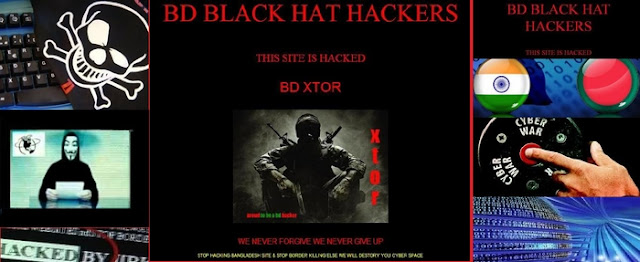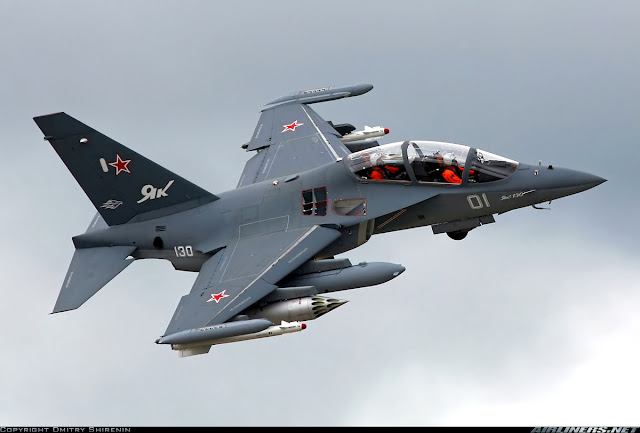A group of alleged Bangladeshi hackers named 'Black Hat Hackers' and their counterparts such as Anonymous and others from a number of countries including Pakistan, Saudi Arabia, Indonesia, Malaysia and United Arab Emirates have already taken more than 25,000 websites in India, which includes some of the important sites such as the website of the Border Security Forces [BSF] etc. It is also learnt that Indian hackers have already hacked into five websites of various ministries in Bangladesh and are now making frantic bid in hacking into the sites of Bangladesh Telecommunications Company Limited [BTCL] as well as some other key websites. According to the alleged Bangladeshi hacker announcement on various social networking sites, the cyber war is continuing in protest of severe brutality and murder of Border Security Forces [BSF] on India on Bangladeshi civilians for decades. Chief of categorically ruled out the possibility of stopping such notoriety though Indian Home Minister as well as the Prime Minister made number of false promises assuring Bangladeshi government of stopping any form of acts by BSF which goes against basic norms of human rights as well as responsibility towards any neighboring country. Bangladeshi government did not confront such statement of the BSF chief.
Meanwhile another group of Bangladeshi hackers named Bangladesh Cyber Army has also issued a video statement calling upon the Indian government to stating:

The group said, "We don't have any alliance with any political entity or organization. We do not discriminate among anyone regardless of caste, creed and religion. We are not terrorists; we are protecting our cyber space. We hate suppression and oppression and no matter how many fall down in the battle, Bangladeshi hackers cannot be defeated. We can and we will rise from the ashes each time we fall."
Meanwhile, one of the leading vernacular dailies in Bangladesh, The daily Prothom Alo prominently published the news of cyber war and victory of Bangladeshi hackers against India, quoting an Indian newspaper named The Deccan Herald. In the readers comment of this news item, all the readers are making supportive and favorable comments towards Bangladesh hackers, which surely exhibit the public sentiment prevailing in Bangladesh about India.
It is also learnt that Indian government has secretly requested Bangladeshi side to "take stern measures in stopping hacking of Indian sites" by the Bangladeshi hackers. On receiving this request from New Delhi, the ministry of foreign affairs and particularly foreign minister Dr. Dipu Moni already spoke to officials at Ministry of Telecommunication as well as Ministry of Home Affairs, to strategies the "best and quickest possible method" in "combating the Bangladesh hackers. It is even learnt that, Dr. Dipu Moni termed the cyber attack against Indian as "an act by some anti liberation forces and Islamic terror outfits."
Commenting on the current Cyber War between Bangladesh and India, where thousands of Indian financial and business establishments are virtually under vulnerable threat, a cyber specialist said, it won't be very easy for Bangladeshi government to stop such war simply by taking some action against people, who might be doing this from Bangladeshi territory as incase of any such actions, the international collaborators of the Bangladeshi cyber hackers may even intensify their offensives on Indian sites.
Though it was already reported in the media that hackers from Pakistan, Indonesia, Saudi Arabia, Malaysia and United Arab Emirates are cooperating with the Bangladeshi hackers, it is also learnt that, several hacker groups from China, Sri Lanka, CIS countries and few nations in the West have also joined hands with the Bangladeshi side. It is even assumed that hackers from some of the African countries may also join the Bangladeshi side in days. Bangladesh hackers are even trying to hack into Indian aviation and naval sites, which may cause severe damage to the country, if the hackers are successful in hacking into any of them even for some minutes. In similar way, account in Indian banks may be totally garbled by the hackers causing serious problem to Indian financial institutions.
Meanwhile another group of Bangladeshi hackers named Bangladesh Cyber Army has also issued a video statement calling upon the Indian government to stating:

- Stop hacking Bangladeshi websites and stop all types of access to Bangladeshi Cyber space completely,
- Stop killing innocent Bangladeshi citizens at BD-India borders,
- Stop Tipaimukh Dam,
- Sign the Teesta water sharing treaty,
- Either stop broadcasting of Indian Media [Indian television channels] in Bangladesh or let Bangladeshi media enter India [it may be mentioned here that, Indian authorities and cable operators are maintaining ban on allowing any Bangladeshi TV channel within cable network in India while Indian channels are freely accessed in Bangladesh and each month they are cashing millions of dollars as license fee from Bangladeshi viewers],
- Stop all anti-Bangladesh activities of BSF and punish all offenders for their deeds against Bangladesh,
- Last but not the least, India has to stop all activities which go against Bangladesh in any possible way.
The group said, "We don't have any alliance with any political entity or organization. We do not discriminate among anyone regardless of caste, creed and religion. We are not terrorists; we are protecting our cyber space. We hate suppression and oppression and no matter how many fall down in the battle, Bangladeshi hackers cannot be defeated. We can and we will rise from the ashes each time we fall."
Meanwhile, one of the leading vernacular dailies in Bangladesh, The daily Prothom Alo prominently published the news of cyber war and victory of Bangladeshi hackers against India, quoting an Indian newspaper named The Deccan Herald. In the readers comment of this news item, all the readers are making supportive and favorable comments towards Bangladesh hackers, which surely exhibit the public sentiment prevailing in Bangladesh about India.
It is also learnt that Indian government has secretly requested Bangladeshi side to "take stern measures in stopping hacking of Indian sites" by the Bangladeshi hackers. On receiving this request from New Delhi, the ministry of foreign affairs and particularly foreign minister Dr. Dipu Moni already spoke to officials at Ministry of Telecommunication as well as Ministry of Home Affairs, to strategies the "best and quickest possible method" in "combating the Bangladesh hackers. It is even learnt that, Dr. Dipu Moni termed the cyber attack against Indian as "an act by some anti liberation forces and Islamic terror outfits."
Commenting on the current Cyber War between Bangladesh and India, where thousands of Indian financial and business establishments are virtually under vulnerable threat, a cyber specialist said, it won't be very easy for Bangladeshi government to stop such war simply by taking some action against people, who might be doing this from Bangladeshi territory as incase of any such actions, the international collaborators of the Bangladeshi cyber hackers may even intensify their offensives on Indian sites.
Though it was already reported in the media that hackers from Pakistan, Indonesia, Saudi Arabia, Malaysia and United Arab Emirates are cooperating with the Bangladeshi hackers, it is also learnt that, several hacker groups from China, Sri Lanka, CIS countries and few nations in the West have also joined hands with the Bangladeshi side. It is even assumed that hackers from some of the African countries may also join the Bangladeshi side in days. Bangladesh hackers are even trying to hack into Indian aviation and naval sites, which may cause severe damage to the country, if the hackers are successful in hacking into any of them even for some minutes. In similar way, account in Indian banks may be totally garbled by the hackers causing serious problem to Indian financial institutions.



